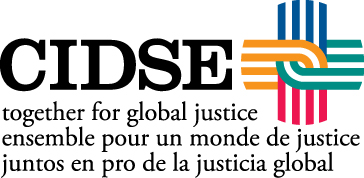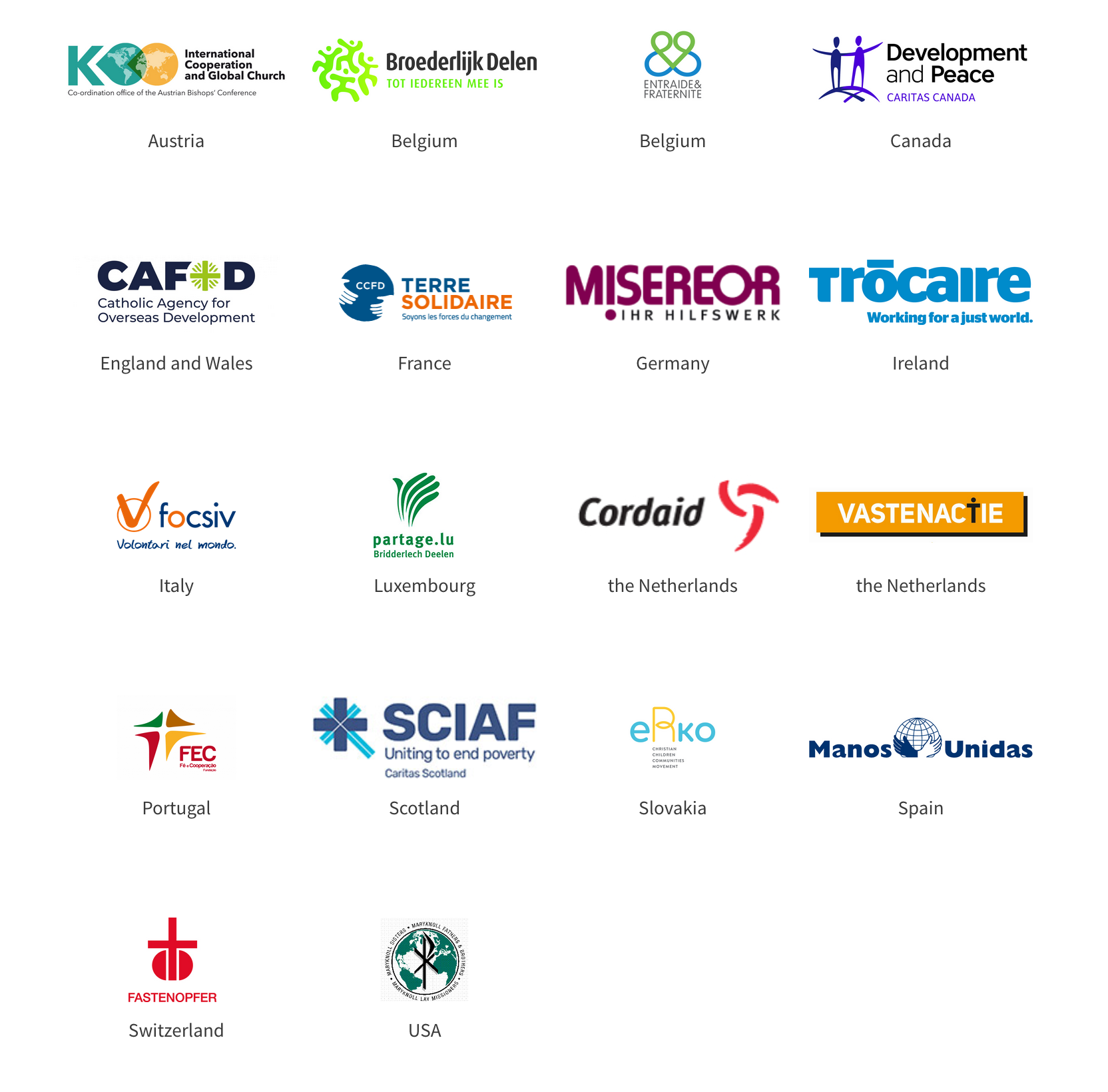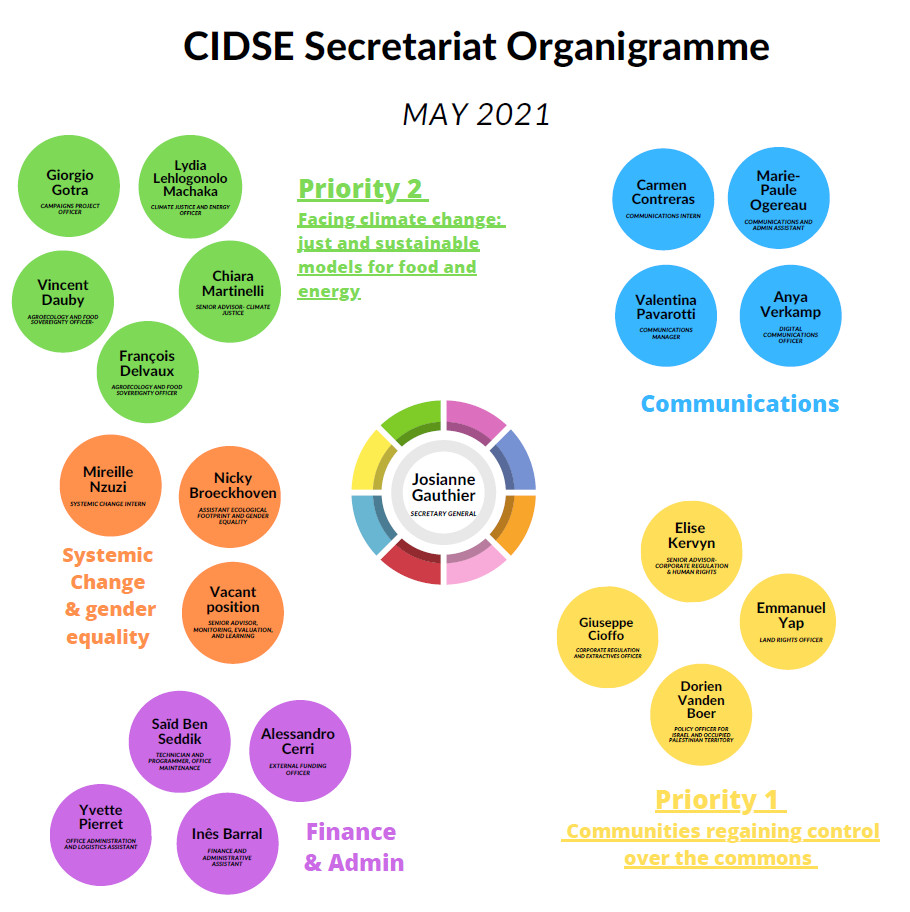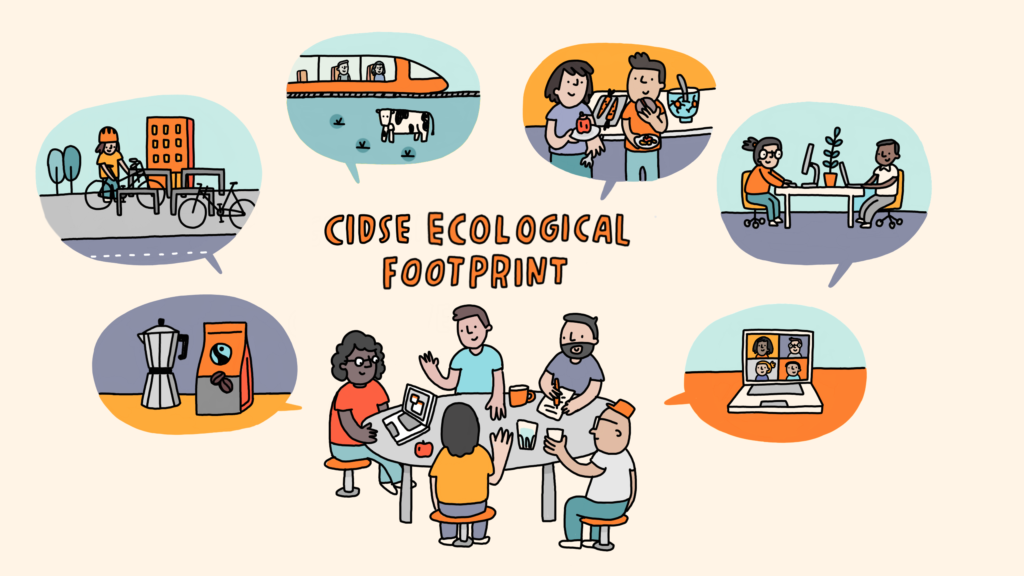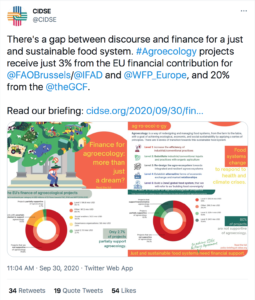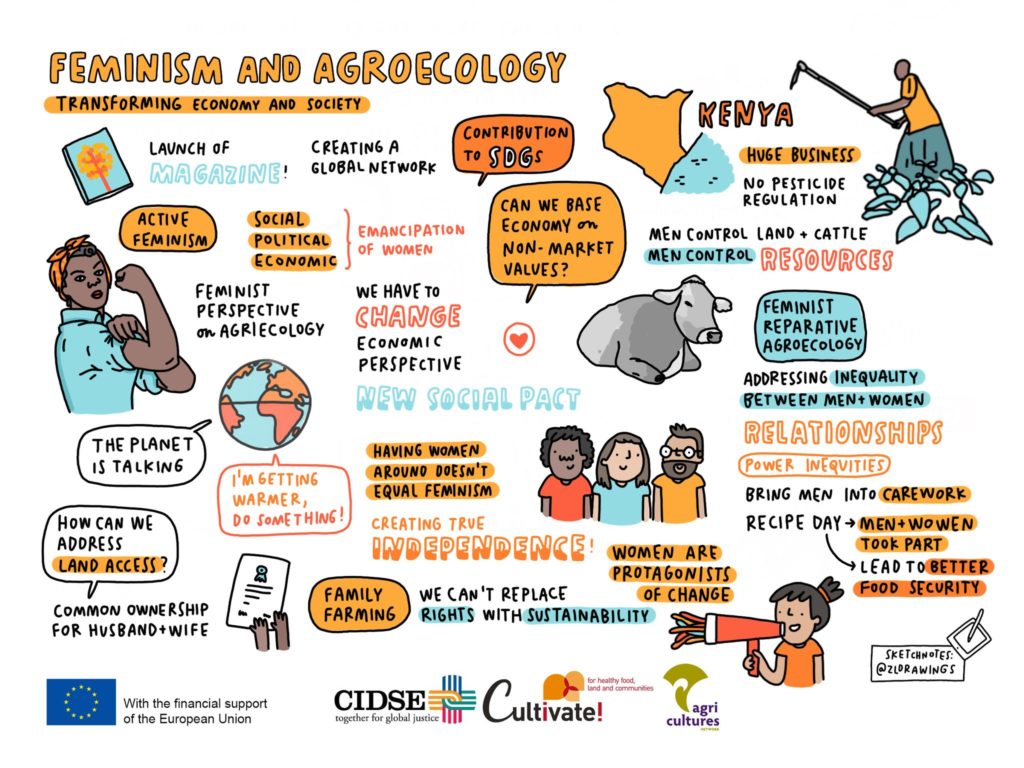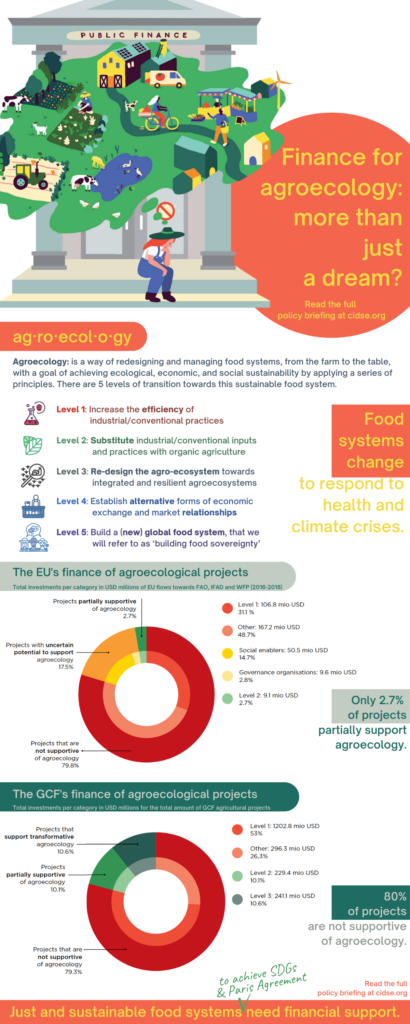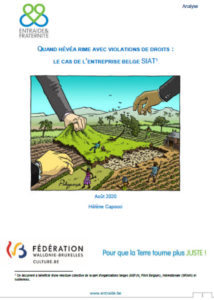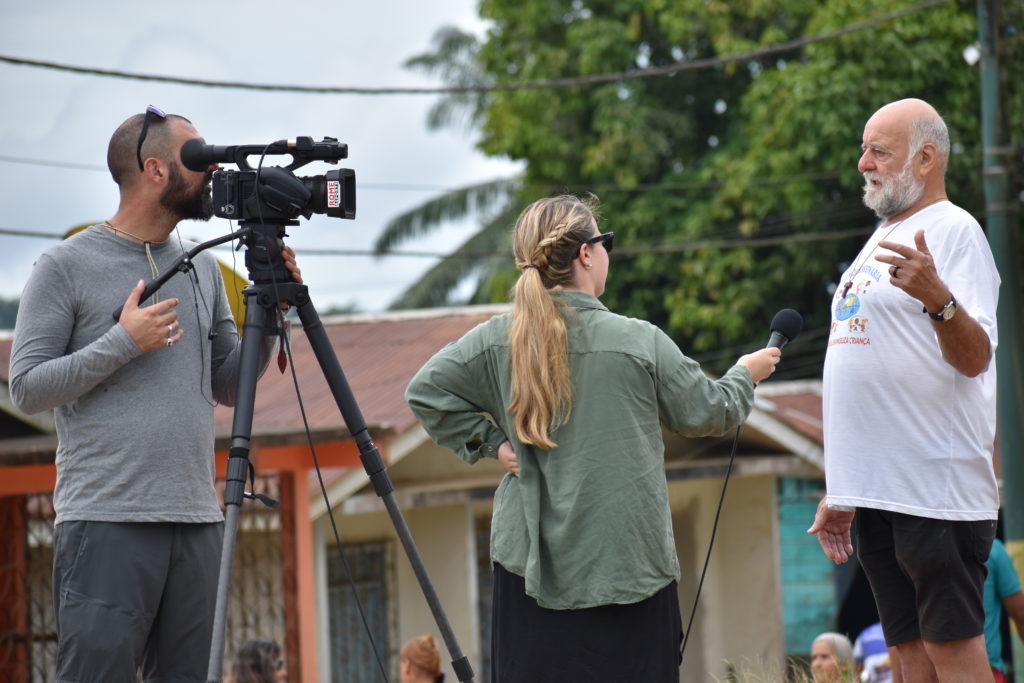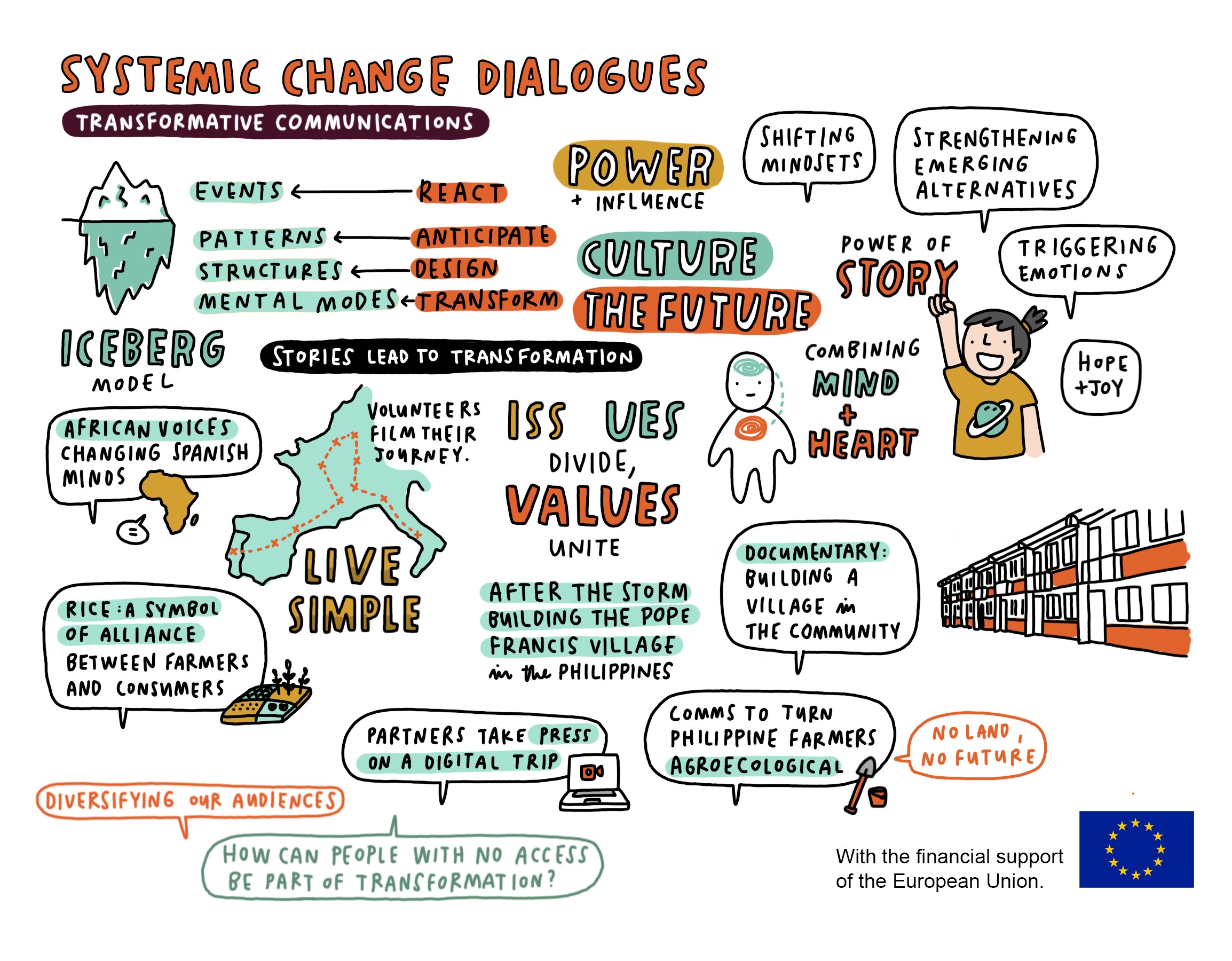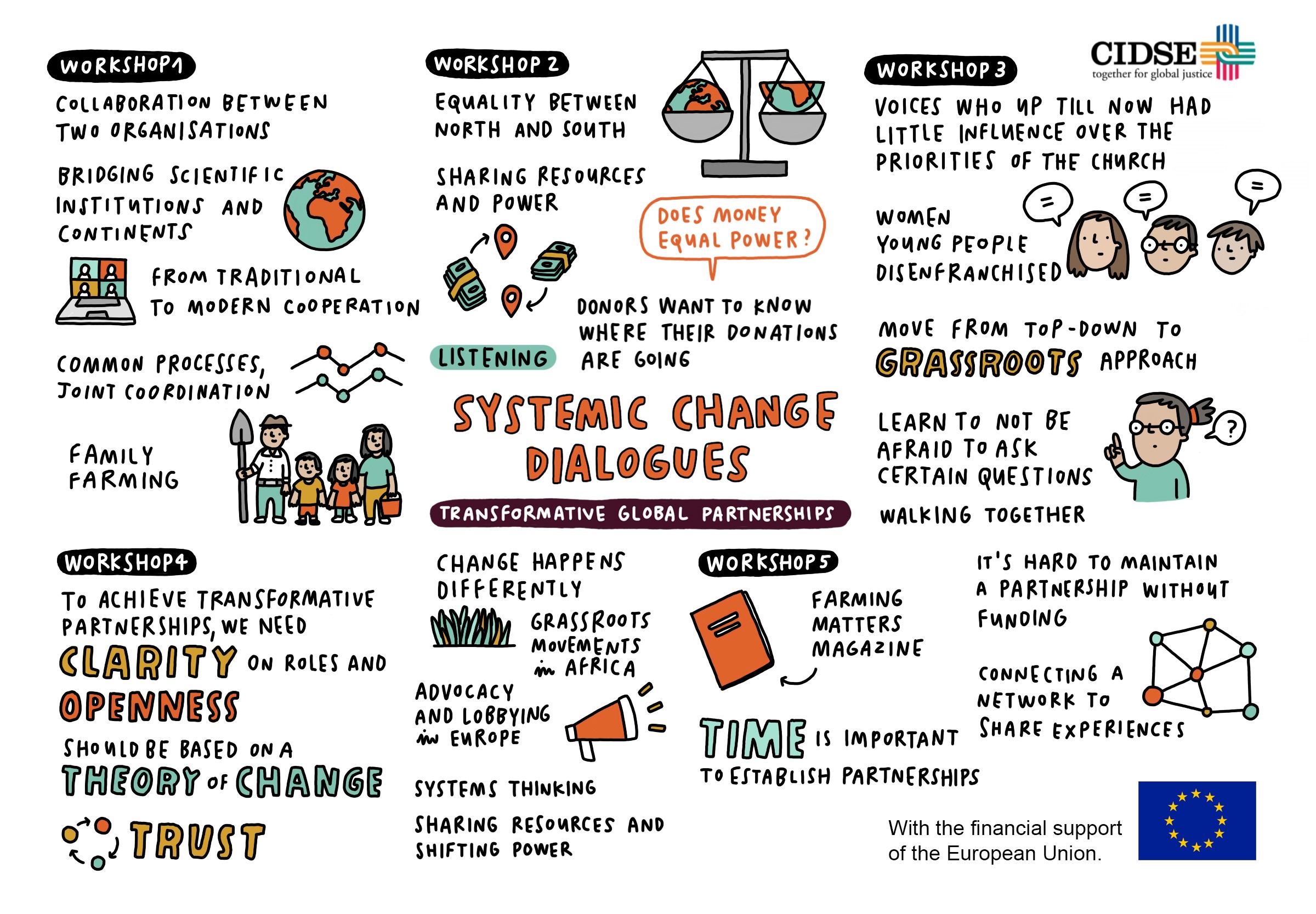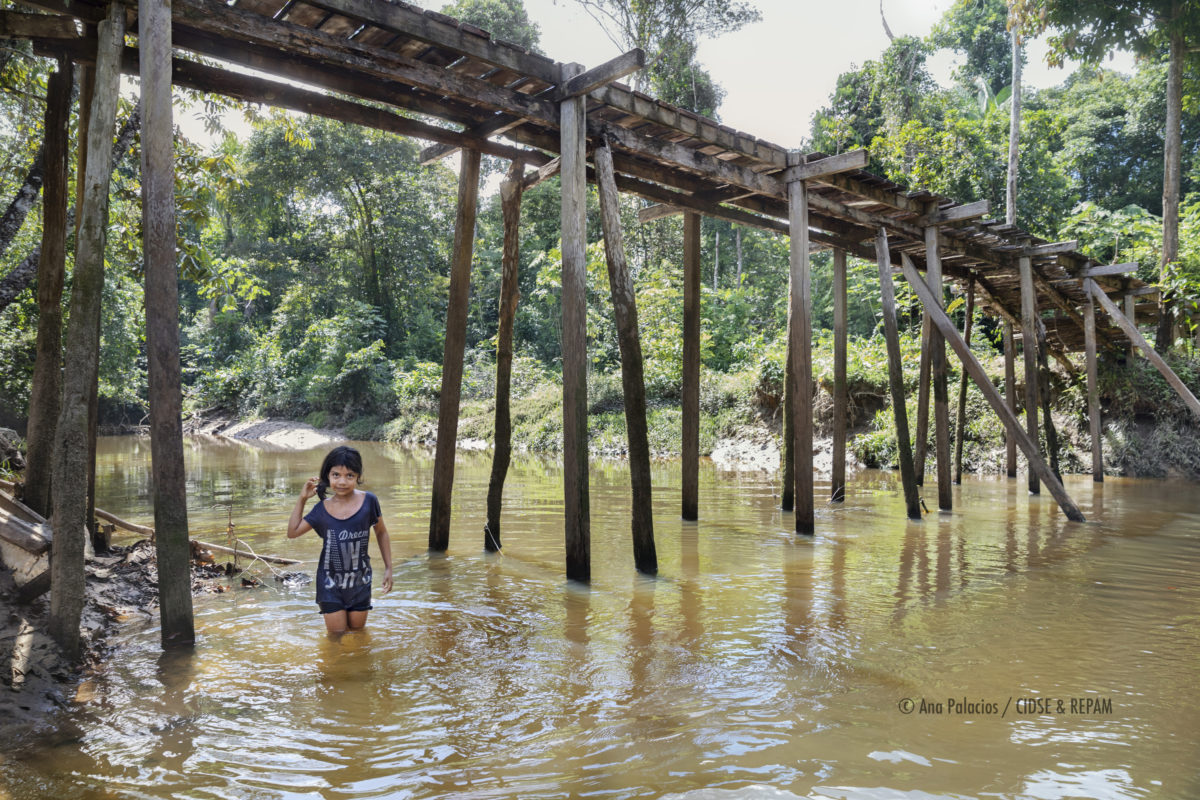Annual Report
2020Foreword
from the President
© Broederlijk Delen
In 2020, nothing went as planned. We were set for a landmark year and we were gearing up for some major engagement in international processes. When the pandemic hit, like many others we had to revisit our priorities and our ways of working, we had to learn to master new technologies and use our creativity for this every day. We had to become a new network overnight, without losing sight of our objectives.
In this context, while the world reached a tipping point, the call for systemic change began to sound louder and louder. Social inequality grew bigger than ever and so many communities we are close to have been affected by multiple crises. The role of care workers, mostly women, came to the surface, both for their essential role and their vulnerability. Trying to make sense of it all, we took the time to reflect in public pieces. In the middle of this, the Black Lives Matter protests prompted difficult discussions. Evolving from the discourse begun the previous year in the Pan-Amazonian Synod, the need for a decolonisation of mentalities became a burning question. In the process of looking inwards we continued to challenge ourselves to walk the talk with commitments to reduce our own organisational ecological footprint and launched a website collecting ideas and case studies from CIDSE members.
Despite the impossibility to demonstrate in the streets and make our voices heard at international conferences, the climate crisis always looms on the horizon and we kept our engagement up: through our participation in the Ecology task force of the Vatican COVID–19 Commission, through the creation of online spaces for youth engagement, and amplifying the voices of partners. We also led other major initiatives and activities such as the Bishops’ statement for due diligence and connecting African civil society for land rights.
While we felt the entire system was crashing down on us, we realised that solidarity, at all levels, is crucial to contain the pandemic: from neighbors supporting each other to a vaccine that is globally available to all. In the fall, we received the new encyclical Fratelli Tutti as a welcome gift reminding us how we all need each other like sisters and brothers, and that we cannot come out of this crisis alone. Despite the harsh reality we had to face, our hope has grown, as there has been a realisation that it is finally time to change things profoundly. Systemic change gained its place on the global agenda and this can’t be ignored any longer. With many other allied organisations, we engaged to “Build Back Better”.
Like Amanda Gorman told us “There is always light, if only we’re brave enough to see it. If only we’re brave enough to be it”!
I invite you to read our 2020 annual report to catch up on a trying, yet very special year and get ready for our next steps.
Lieve Herijgers
Director, Broederlijk Delen (Belgium)
Best of 2020
Areas of Work
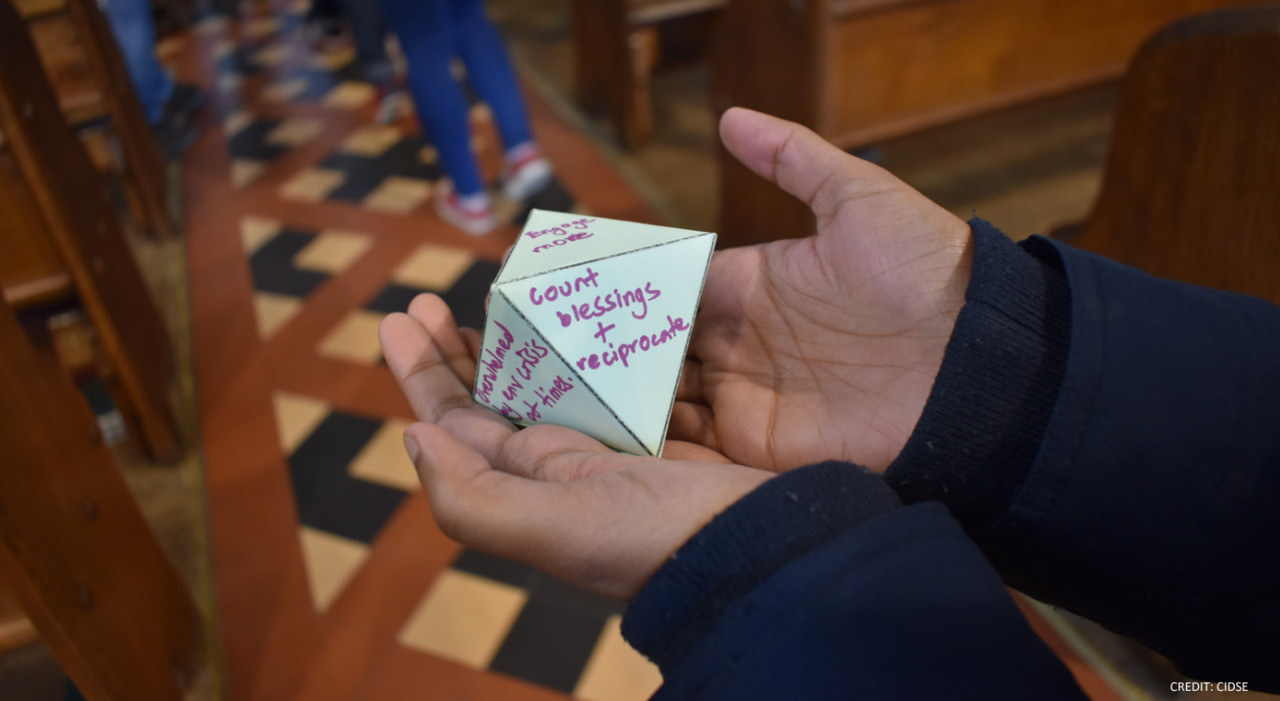
COVID-19: A Just Recovery for All
Prompted by the special context we found ourselves in, and in close connection with partners and allies, we had the opportunity to share several reflections on the systemic nature of the pandemic and its impacts on all levels of our lives. We did this through our Voices for Change blog, but also by supporting the Vatican’s COVID-19 Task Force. We also started thinking about what the world would be after the health crisis, and flagged the important step of debt cancellation.
Events
Resources
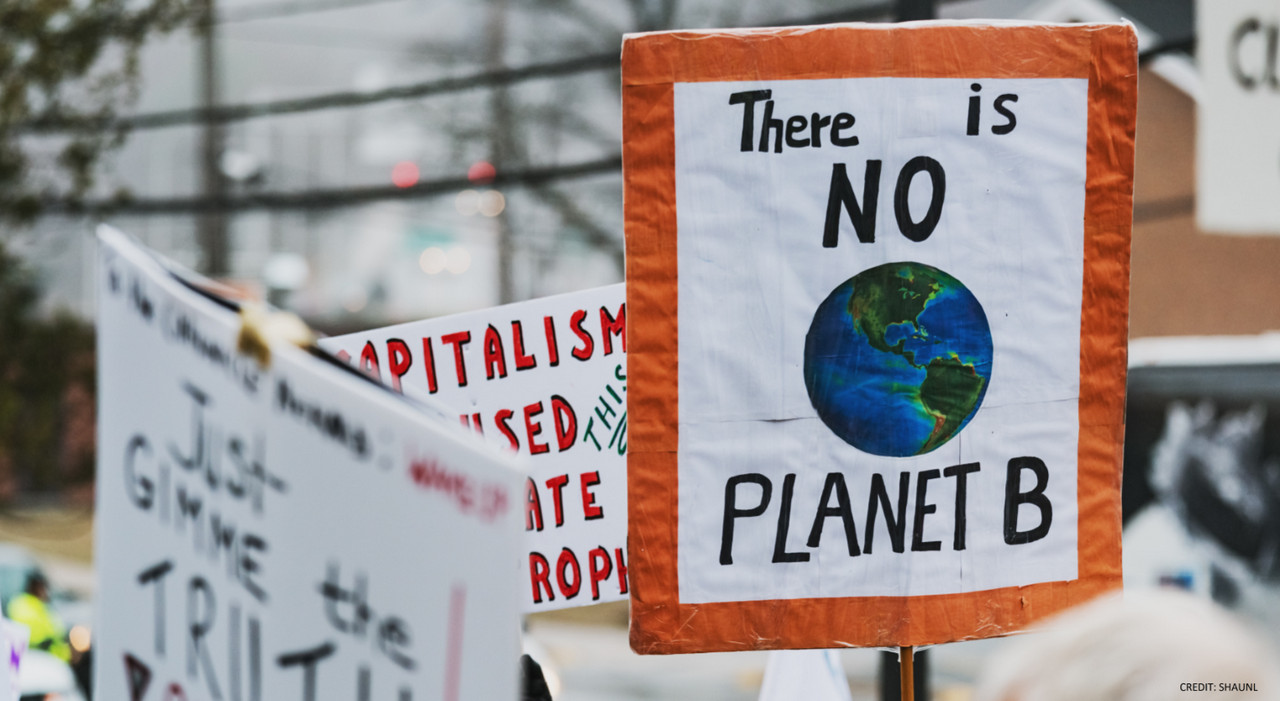
Systemic Change
We strive to work for transformation that pervades all parts of the system. Our work on systemic change in 2020 was also reflected in our efforts to keep promoting gender equality and bringing to fruition many years of efforts on our ecological footprint. It has also guided us in our reading of the lessons drawn from the Synod on the Amazon, in the activities around the 5th anniversary year of Laudato Si’ as well as welcoming the new Encyclical Fratelli Tutti.
Events
Resources
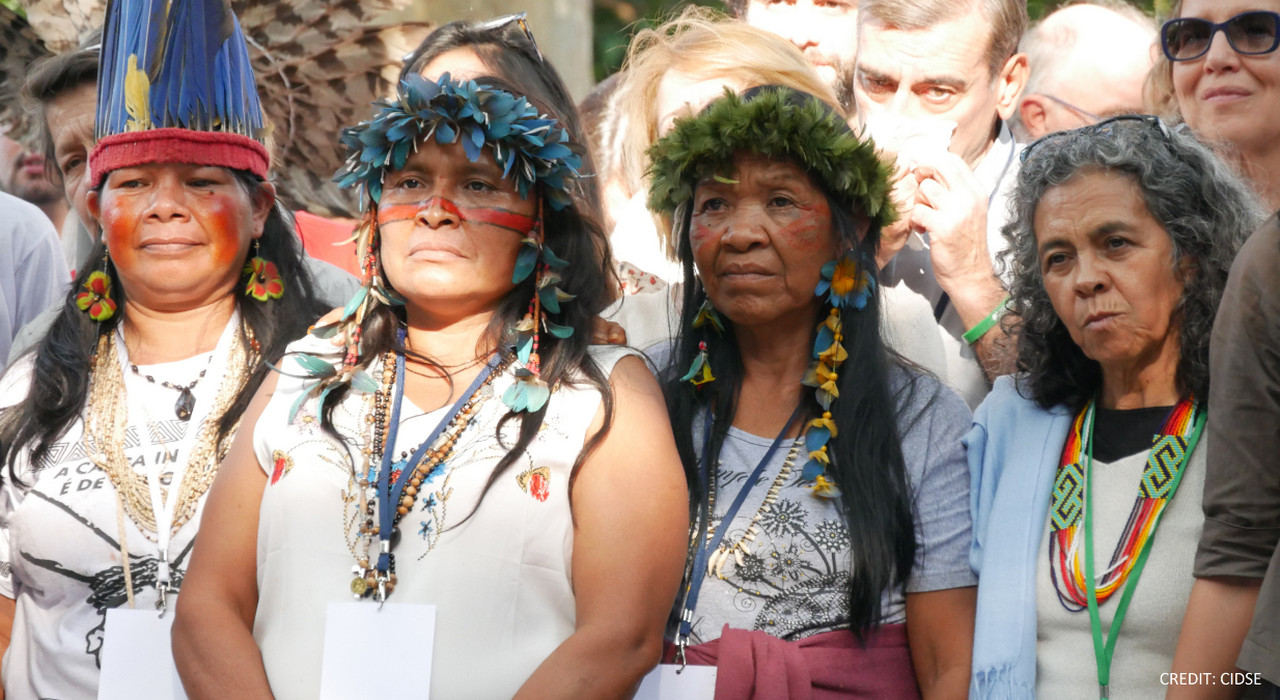
Business and Human Rights
Events
Resources
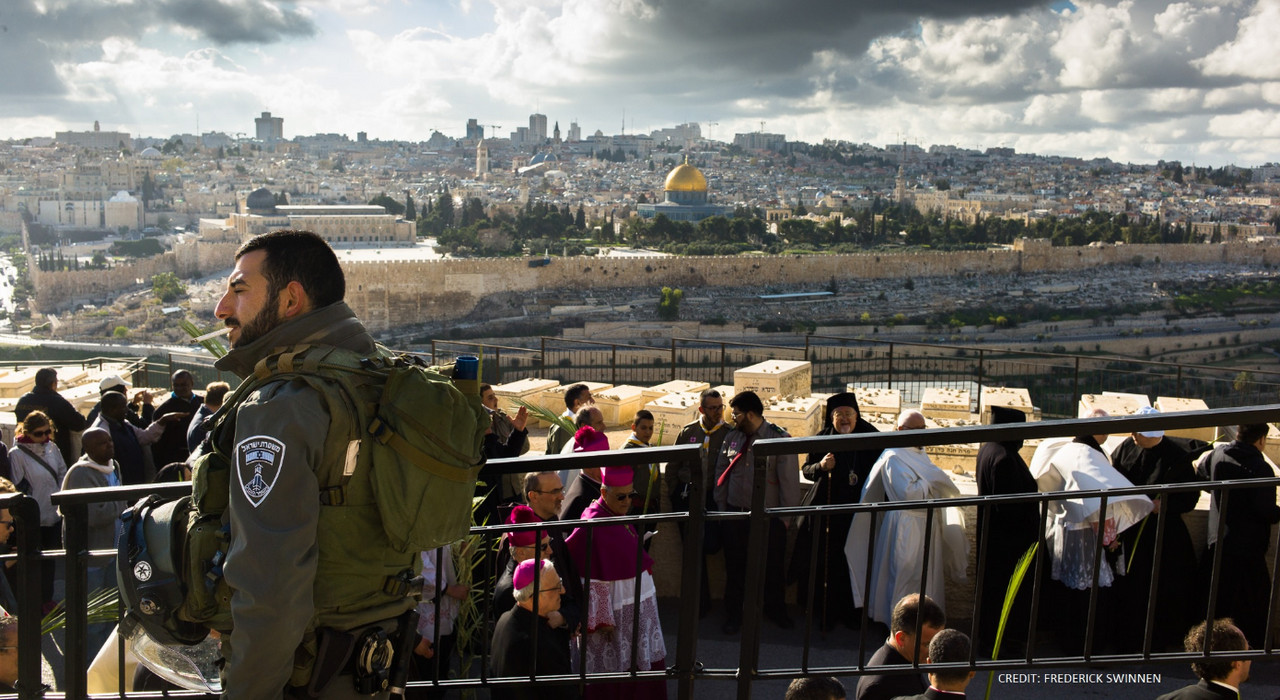
Territory and human rights
Events
Resources
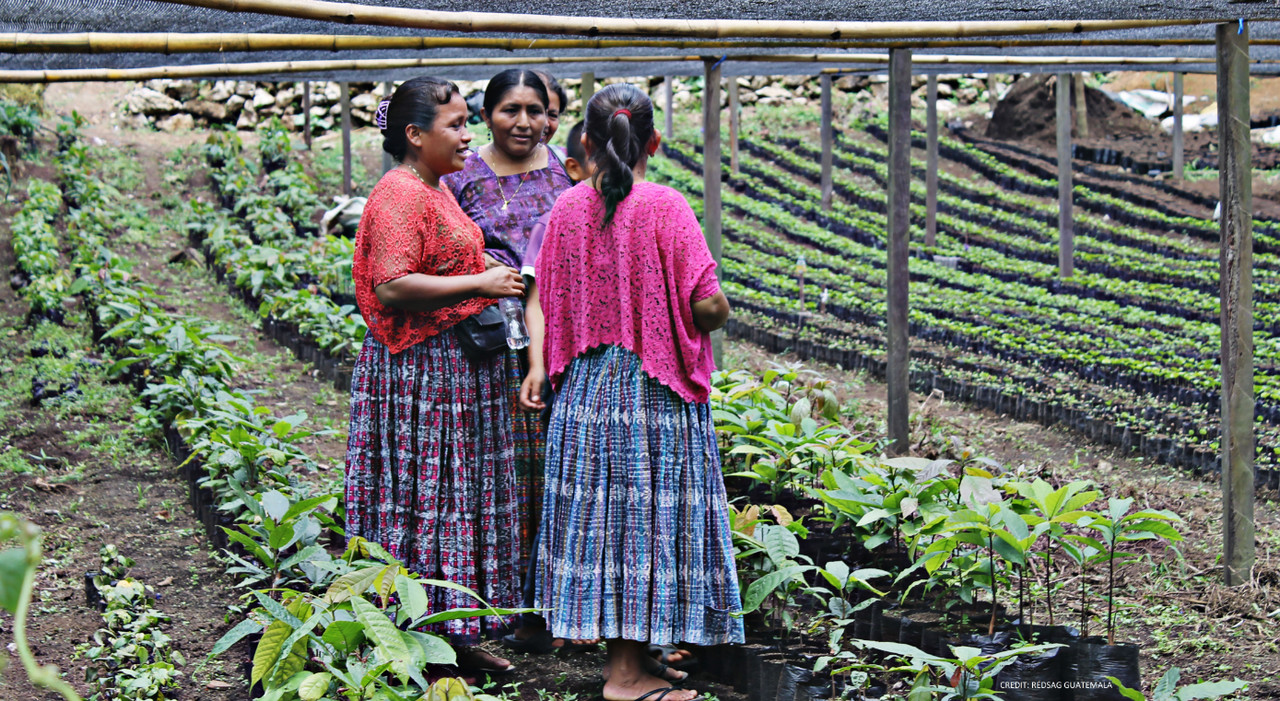
Agroecology
Events
Resources
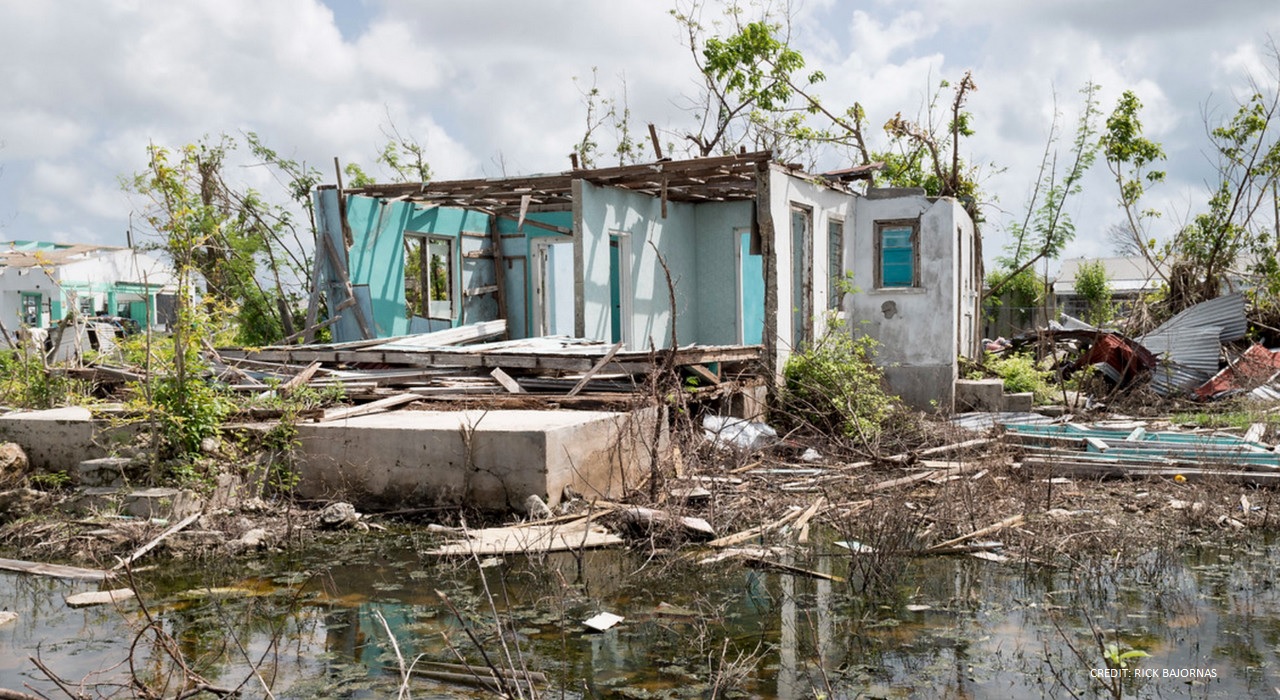
Climate justice
Events
Resources
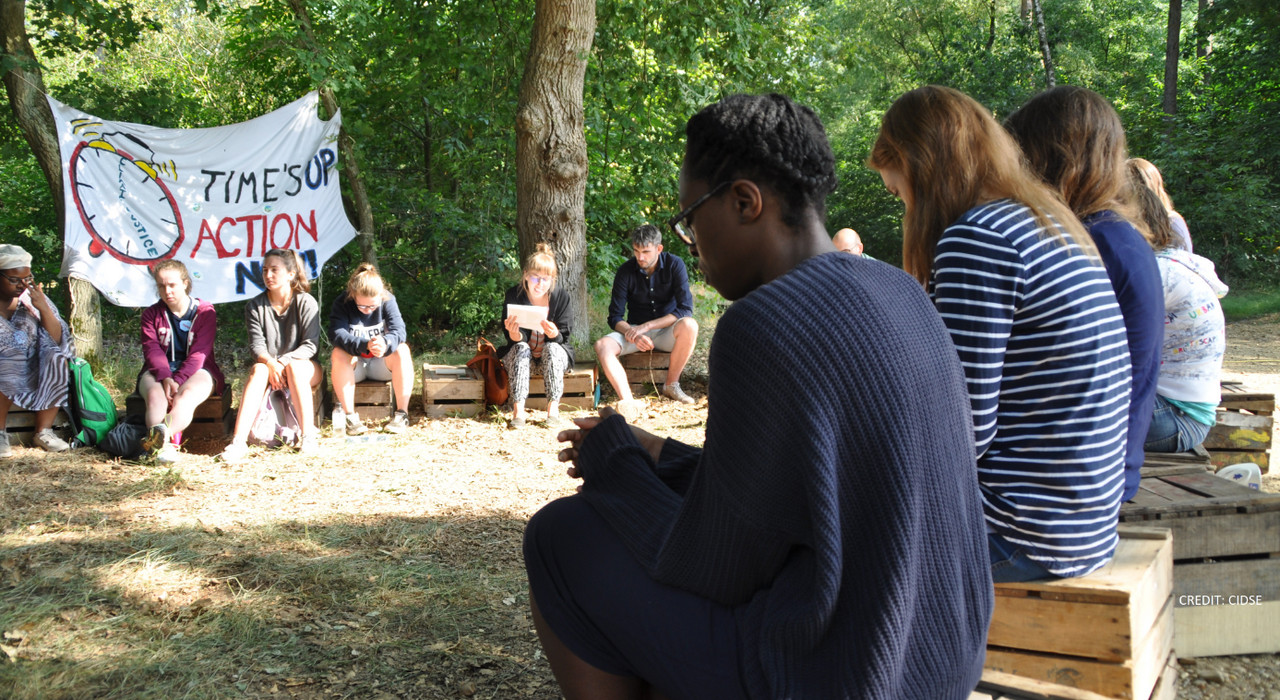
Ecological conversion in communities and organisations
The Change for the Planet – Care for the People initiative is based around encounters of the volunteers’ network of our member organisations. Volunteers still came together in summer camps, and reflected on their role in climate activism. On the 5th anniversary of the Change and Care initiative and Laudato Si’ we reflected together with other Catholic actors on progress so far and how to continue our path of ecological commitment. We also published the CIDSE Ecological Footprint to further practice in our operations the changes we wish to see in our society’s consumption.
Events
We brought actors together online for the Laudato Si’ 5th anniversary and the Ecological Footprint. Our volunteers still gathered in summer camps.
Resources
Coming up
2021
FEBRUARY
Ending 15 years of illegal blockade:
multimedia story on human rights in Gaza
MARCH
Study on biodiversity
APRIL
Policy briefings
on climate finance and agroecology & finance
SEPTEMBER
EU Due Diligence Legislation
campaign
OCTOBER
Geneva UN Binding Treaty session
NOVEMBER
COP26 Glasgow
Change for the Planet – Care for the People documentary
Governance structures and finance
BOARD OF DIRECTORS
The Board of Directors is composed of the directors of the 18 Member Organisations. The Board meets twice a year and is responsible for the governance and strategic vision of CIDSE, particularly for reviewing current activities and formulating policies for the future.
EXECUTIVE COMMITTEE
The Executive Committee is the implementing and supervising arm of the Board of Directors.
- President: Lieve Herijgers (Broederlijk Delen)
- Members: Ricardo Loy (Manos Unidas), Msgr. Pirmin Spiegel (MISEREOR), Alistair Dutton (SCIAF), Caoimhe de Barra (Trócaire)
- Ecclesiastical Assistant: Mgr. A. Tesfaselassie Medhin (Eparchy of Adigrat/Ethiopia)
-
Interim Treasurer: Dunie Wijbenga (Cordaid)
- Secretary General: Josianne Gauthier
The Ecclesiastical Assistant, the Treasurer Secretary and the General are non-voting members.
Working groups
Finance
The CIDSE network is funded by membership fees and additional resources from its members for special projects. In 2020, CIDSE also received external funding from:
- The European Commission, Directorate General for International Cooperation and Development (DG DEVCO), as part of the Framework Partnership Agreement ‘Experience, Learning, Sharing through joint action and strategic planning to achieve global justice.’ (2019-2023).
- The KR Foundation, as part of a second grant in favour of the ‘Change for the Planet – Care for the People’ initiative (2020-2022).
CIDSE Income 2020
- Membership fees: € 1,092,615
- European Commission Framework Partnership Agreement: € 406,370.69
- KR Foundation: € 123,145.21
TOTAL INCOME: € 1,622,130.90
CIDSE is grateful to all its network members as well as to the European Commission and the KR Foundation who have made it possible to carry the work presented in this report.
CIDSE Expenditure 2020
Total:
€ 1,402,325.09
Advocacy*:
€ 1,084,710.58
Communication and networking events:
€ 220,072.50
Administration and Secretariat:
€ 97,541.96
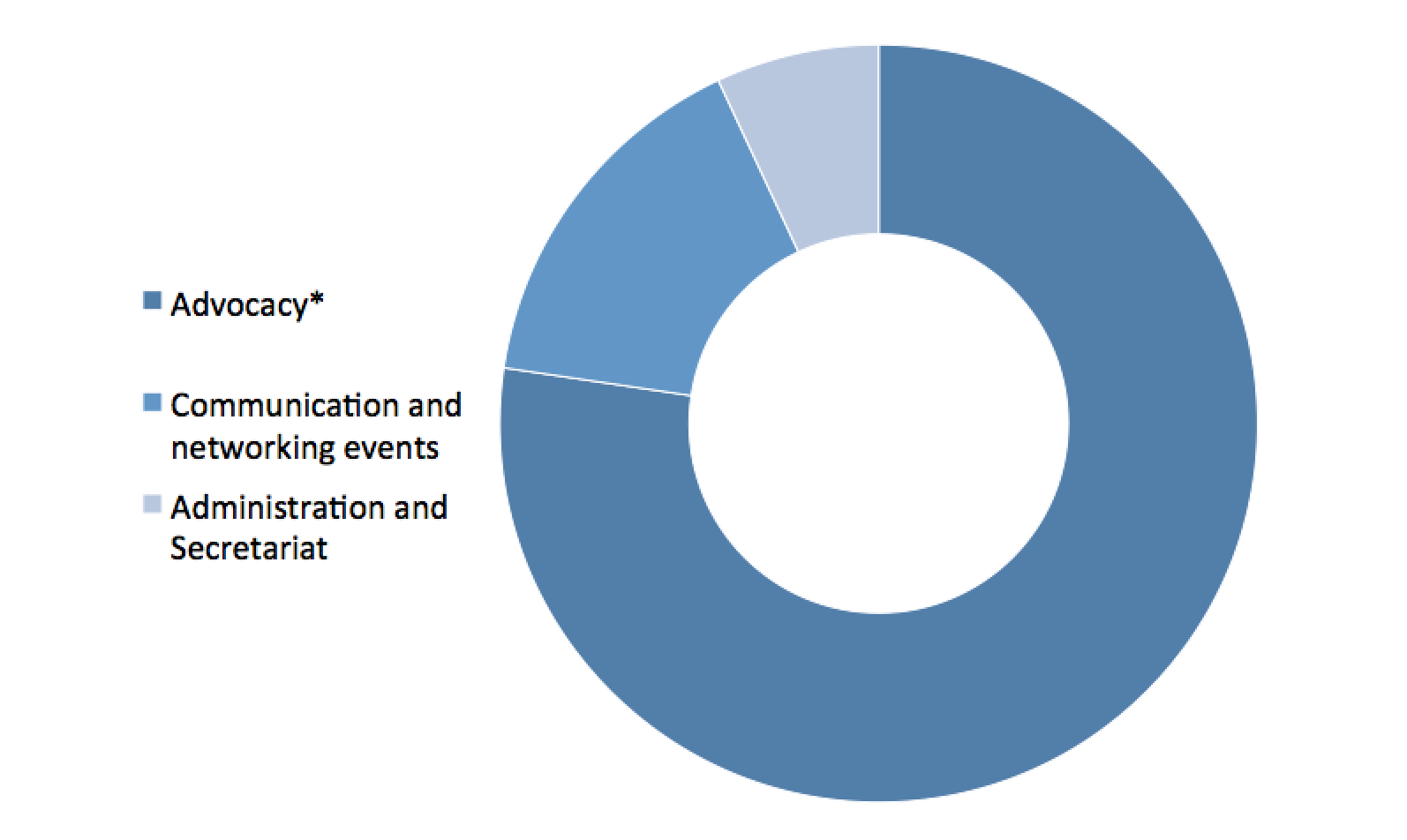
Systemic change, Communities regaining control over the commons, Facing climate change: Just and sustainable models for food and energy, sustainable lifestyles.
CIDSE also coordinates the following project:
Israel-occupied Palestinian territory: € 43,555.94
About CIDSE

WHO WE ARE
We work for a society based on social, economic and gender equality and solidarity, where the economy is at the service of society and functions within planetary boundaries. We aim at a fairer share of and limits in the use of global resources, and democratized governance where people regain control over their choices in economies based on the commons.
We work for reforms with transformative potential: to move away from fossil fuels and extractivism, to limit global temperature rise below 1.5 degrees, to promote the right to food and agroecology, to regulate business to enforce human rights,to secure sustainable finance and fair wealth distribution, to support local communities to speak for themselves, to confront gender inequalities, and to enable sustainable ways of living.
To make this happen we contribute to global movements and alliances of change, promote peoples’ solutions and alternatives and advocate at the international level.
Collaborators
CIDSE works closely with diverse local and international alliances and organisations.
These include: Caritas Internationalis, Caritas Europa and Franciscans International.
We are member of Concord, Climate Action Network-Europe, the Global Catholic Climate Movement (GCCM), as well as a founding member of the European Laudato Si’ Alliance (ELSiA).
During 2020, the Secretariat continued to strengthen its collaboration with other networks and alliances such as: COMECE (Commission of Bishops’ Conferences of the European Community) and JESC (Jesuit European Social Centre) for which we hosted two interns through their European Leadership Programme.
SECRETARIAT STAFF
The CIDSE Secretariat facilitates and coordinates the common efforts of its members, represents CIDSE at the EU and international levels and undertakes advocacy activities and other initiatives in collaboration with its members to contribute towards systemic change and global justice. The Secretariat is organised into teams that coordinate various working groups in order to achieve its objectives:
- Societal and ecological transformation
- Communities regaining control over the commons
- Facing climate change: just and sustainable food and energy models
- Change starts with us
We thank Denise Auclair, Jassin Fetahovic, Sandor Neubauer, Sylvia Obregon, Stefan Reinhold and Hannah Twomey for their valuable contributions to CIDSE’s work.
External support
Wim Hendrix, Finance Consultant
Bea Lambrecht, Human Resources Consultant
